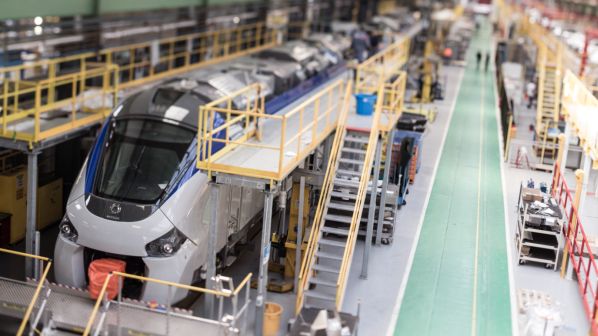In a joint letter, the heads of the Belgian Competition Authority, Britain’s Competition and Markets Authority, the Dutch Authority for Consumers and Markets and Spain’s National Commission for Markets and Competition (CNMC) state that competition between Alstom and Siemens a particularly important driver of cost-effective pricing and product and service innovation within the European railways sector.
The European Commission (EC) launched an investigation into the merger in July amid fears the deal could lead to “higher prices, less choice and less innovation due to reduced competitive pressure in rolling stock and signalling tenders.”
On October 29, the EC issued a Statement of Objection to the two manufacturers outlining its concerns about structure of the proposed transaction.
Alstom and Siemens submitted a remedy package to the European Commission (EC) on December 12 in response to Statement of Objection. Details of the remedy package have not been made public, but Reuters reported on December 17 that the two suppliers have offered to sell one of their high-speed businesses, quoting sources close to the merger.
Earlier this week Vestager expressed concern over proposed measures for the high-speed business and now EU member states are also expressing anxiety about the potential outcomes of the remedy package as it is currently proposed.
The four national competition authorities argue that the “overall loss of competition brought about by the merger would be both widespread and very significant” and question the effectiveness of proposals put forward by Siemens and Alstom for their high-speed businesses, claiming the measures “fall well short of what is required” in this sector.
“The Commission’s investigation has found that the Parties are, and have been for some time, by far the two largest suppliers of very high-speed rolling stock in the EEA, with both holding and maintaining a broad product portfolio and significant customer base, and competing very closely for tenders,” the letter states. “Barriers to entry and expansion for new or emerging players are very significant and customers have little bargaining power that could protect them against price rises. It is clear, therefore, that this is a market in which the merger raises very serious and extensive competition concerns.”
The authorities argue that such concerns can only be adequately addressed with a “very substantial remedy, typically the full divestment of one or other of the merging parties’ overlapping businesses to a suitable buyer who could recreate the competitive rivalry lost through the merger,” and they claim the proposal put forward by Siemens and Alstom has not addressed this shortcoming.
“Serious defects”
The letter also highlights anxieties over the impact on other sectors, and the authorities say the measures proposed by Siemens and Alstom “seem to suffer from serious defects that might materially undermine their effectiveness.”
The measures proposed by the two suppliers in the remedy package represent around 4% of the sales of the combined entity. However, the competition authorities claim it would be difficult for the buyers of the divestment packages to operate these assets with the same competitive intensity as Alstom and Siemens do at present.
The letter also expresses concern over technology transfers, which may be difficult to monitor.
“In light of these shortcomings in the remedies offered by the Parties – and the risks around their effective implementation – we consider that they should not be considered to meet the Commission’s requirements for acceptable remedies,” the letter concludes.
The EC is expected to decide by February 18 2019 whether the proposed measures adequately address its concerns about the planned transaction.

